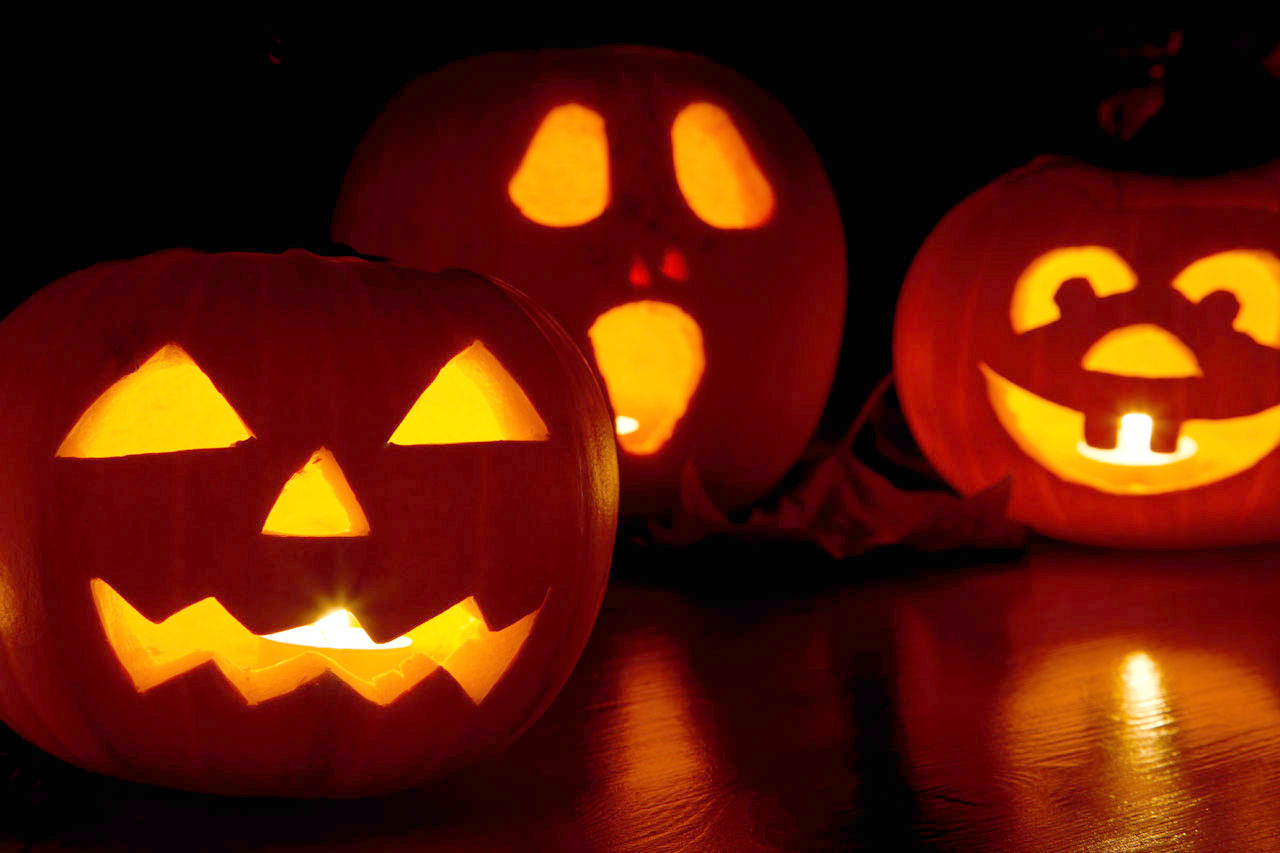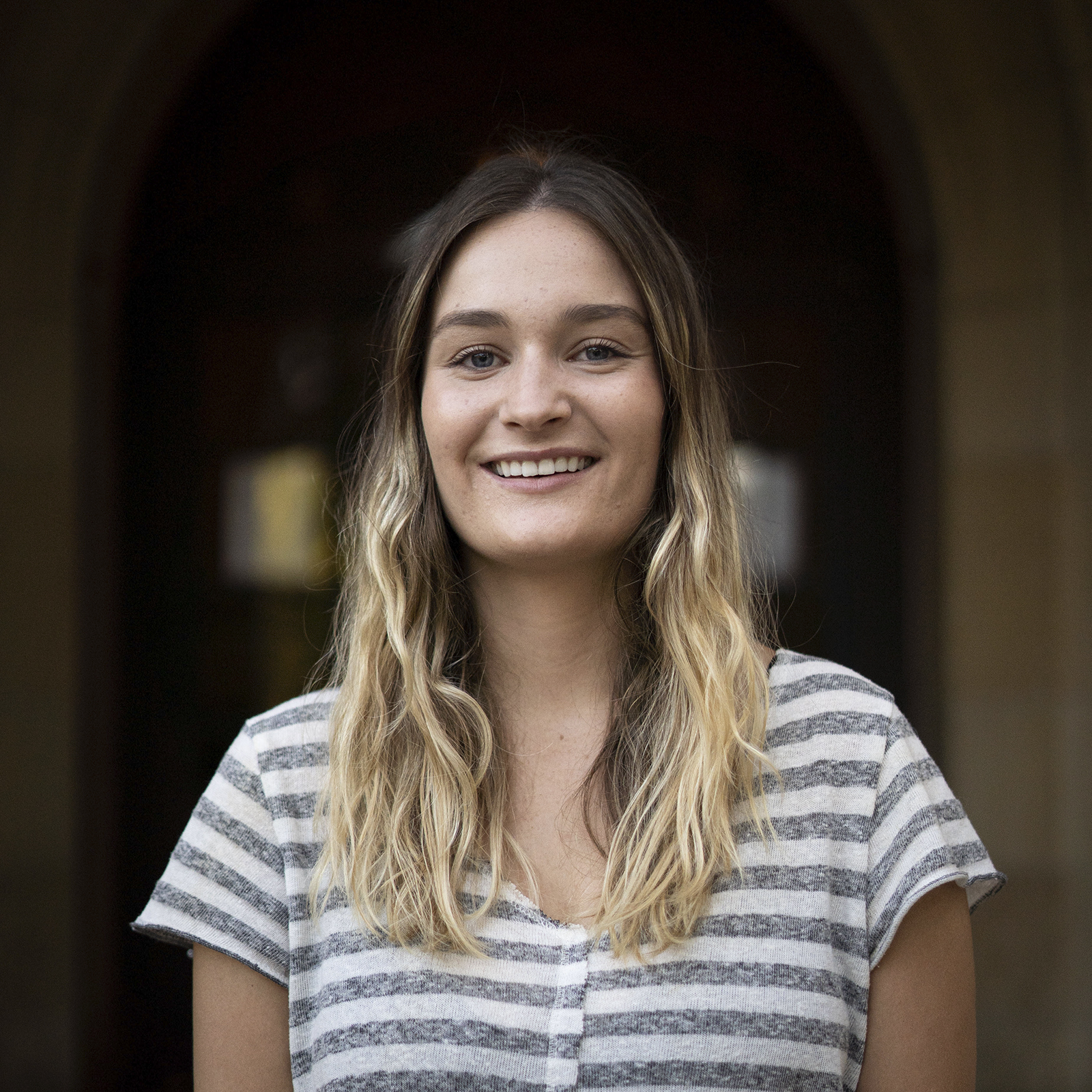The Quad: Samhain, the Celtic origin of Halloween in the US

(Creative Commons photo by Petr Kratochvil)

By Molly Wright
Oct. 31, 2017 7:26 p.m.
A kaleidoscope of multicolored oak leaves crunch under tiny kid feet, shattering like shards of glass. Fall is a magical time, and with the autumn colors and slight chill in the air comes a fan-favorite holiday – Halloween.
When I think of Halloween, handmade costumes and plastic pumpkin baskets come to mind. But what is the origin of this classic holiday?
Halloween originated in Europe and has roots in an ancient Celtic festival called Samhain. Samhain is a festival that signals the end of the fall harvesting season and ushers in the beginning of winter, when the Celts would light fires and wear costumes to ward off ghosts.
Nov. 1 was also the Celtic New Year. The Celts thought that on the night before the New Year, the division between the living and the dead ceased to exist. It was believed that on the night of Oct. 31, which is the beginning of Samhain, the ghosts of the dead returned to earth; Samhain was held in order to rid the earth of these ghosts. The night was called All Hallows’ Eve and then eventually earned the name “Halloween.”
[Related: The Quad: Kick-start Halloween festivities Friday with these spooky attractions]
Even though the Celts thought that the ghosts or spirits caused trouble and ruined their harvest crops, they also thought that their presence made it easier for Celtic priests to predict the future, which was important to the Celts. In addition to using the bonfires to ward off the ghosts, they also gathered around in costumes consisting of animal skins and tried to tell one another’s fortune.
Halloween was not widely celebrated in America at first because of strict Protestant beliefs in regions like New England. However, as the melting pot of different European ethnic groups combined with ideas from Native Americans, an “Americanized” version of Halloween emerged. This version of Halloween started with “play parties,” which consisted of festivals to celebrate harvest. Townspeople would share stories of the dead, and fortunes would be told among dancing and signing, similar to the way Celtics celebrated Samhain.
Halloween became more widespread as immigrants from countries such as Ireland – a part of the Celtic region – came to America and popularized the holiday.
[Related: The Quad: Reflecting on Halloween’s changing traditions]
Another holiday that occurs around the time of Halloween is the Mexican holiday Dia de los Muertos. Many consider it the “Mexican Halloween,” but this is not necessarily true. Dia de los Muertos isn’t just a single day, as Halloween is – it’s a three-day event that starts Oct. 31. Dia de los Muertos isn’t about mourning losses of loved ones, it is more about gathering with friends and family to remember and connect with those who have passed. This holiday is widely celebrated by those of Mexican ancestry, including in places like the United States where many people of Mexican heritage have immigrated to. Many cities in Southern California have Dia de los Muertos celebrations, including at least five in the Los Angeles area.
I think it’s important that Halloween has developed into the celebratory holiday that it is today – when else do we have an excuse to transform into any character we choose to be or get delicious candy for free? Even as an adult, I feel like it’s still acceptable to partake in Halloween – whether that be just with a fun holiday to celebrate history or by actually trick-or-treating. This holiday keeps a fun, light-hearted spirit alive.
Whether or not one decides to celebrate Halloween, it is an event adults can use as an excuse to enjoy the fall season, just as the Celts did years ago. I don’t know about you, but I think that’s worth commemorating.


